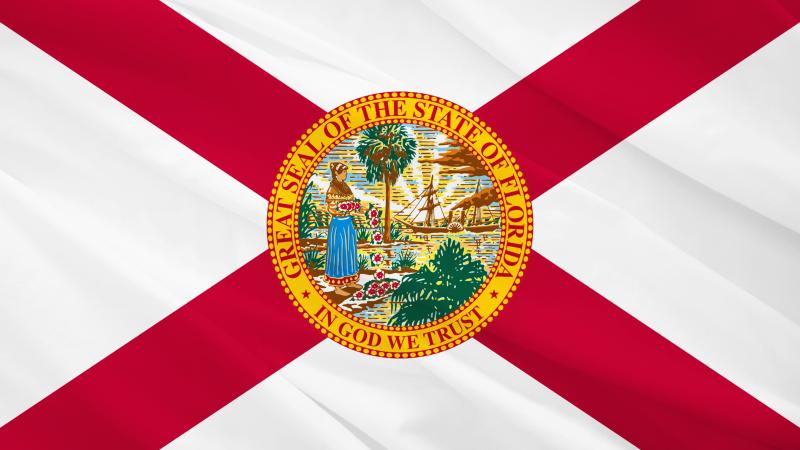Feds endanger women, kids by trampling state laws on abortion, 'gender affirming' care: lawsuits
Texas family doctor faces federal prison, six-figure fines if she "guesses wrong" on whether HHS rules on "reproductive health care" preempt her own state's. GOP states take over emergency doctors' suit against loosened abortion drug rules.
As GOP attorneys general take a second bite at the apple in a lawsuit against the Food and Drug Administration's relaxed rules for the abortion drug mifepristone, a Texas family physician is suing the Department of Health and Human Services – before the same judge – for another alleged twisting of the law to privilege both abortion and so-called gender affirming care.
HHS's new regulation under the Health Insurance Portability and Accountability Act contradicts the statute's own recognition of "government authority to investigate and to require disclosures concerning abuse" by criminalizing HIPAA-covered entities for sharing certain information with "state child-welfare agencies and law enforcement agencies" at all levels, Texas Dr. Carmen Purl alleges.
It's a direct attack on the Supreme Court's Dobbs decision returning abortion regulation to the states, her lawyers at the Alliance Defending Freedom said.
“The Biden-Harris administration’s unlawful rule weaponizes laws about privacy that have nothing to do with abortion or gender identity," undermining "state laws that protect mothers and unborn children from the harms of abortion, and vulnerable children from dangerous and sterilizing procedures," senior counsel Julie Marie Blake said.
The Heritage Foundation's Roger Severino, who enforced HIPAA in the Trump administration, and former Equal Employment Opportunity Commission attorney Rachel Morrison of the Ethics and Public Policy Center made similar arguments in public comments on the proposal last year.
Severino went so far as comparing HHS to southern states promising to ignore the Supreme Court desegregation ruling Brown v. Board of Education. He told Just the News at the time the "absolutely impenetrable" language of the proposal appeared "purposely meant to confuse and misdirect" covered entities, itself a violation of the Administrative Procedure Act (APA).
Missouri, Kansas and Idaho took over for emergency physicians, denied legal standing by the Supreme Court in June, to block the FDA's mifepristone expansion that made the abortion drug available through 10 weeks of pregnancy, removed mandatory reporting of non-fatal adverse events, and allowed mail-order and retail pharmacy prescriptions without an in-person visit.
AGs Andrew Bailey, Kris Kobach and Raul Labrador, who originally intervened in the failed Alliance for Hippocratic Medicine challenge, told U.S. District Judge Matthew Kacsmaryk in a Sept. 30 joint status report with the defendants that they could take over the lawsuit.
"This amended complaint will confirm that the States do not challenge the original 2000 approval of mifepristone, merely the FDA’s actions from 2016 to 2023," and update the facts supporting their legal standing and "other aspects" of the complaint, they said.
The FDA infringes their state sovereignty by undermining their abortion regulations, including direct responsibility for "minor girls in the foster care system or other state facilities," forcing them to spend taxpayer money to treat mifepristone complications, and lowering their "actual or potential population" by preventing births, the Oct. 11 amended complaint argues.
The Topeka Capital-Journal reported a successful challenge would require three in-person visits to get the drug, reverse its generic approval, and block nurse practitioners and other providers from prescribing it and pharmacies from dispensing it. The AGs added a new claim, that the mifepristone expansion did not account for "lack of study on adolescents."
The Biden administration's HIPAA rulemaking changed its definitions of "person" to exclude human beings before birth, "reproductive health care" to "broadly" apply to the reproductive system, and "public health" to exclude use and disclosure of personal health information (PHI) for investigations or proceedings related to reproductive healthcare.
The APA lawsuit by Dr. Purl and her Fast Care Walk In Clinic alleges the regulation exceeds HHS's statutory authority and is "arbitrary and capricious."
It "arguably" requires her to violate Texas law by stopping her from notifying authorities of a patient coerced into an abortion and "patients having received abortions in other states," as well as minors with sexually transmitted diseases or undergoing a "gender transition" involving puberty blockers, cross-sex hormones and surgical alterations.
Purl "regularly encounters" patients with reproductive-system needs or medical histories, including abortion and gender transitions, and state law binds her to report both "suspected abuse or neglect of a child" or of adults when they were children.
The regulation tries to have it both ways by expressly allowing disclosure "to defend against a claim or prosecution involving 'reproductive health care'" when a medical provider allegedly violates state laws on abortion or child gender transitions, the lawsuit says.
HIPAA not only "has nothing at all to do" with abortion or gender identity but "does not treat medical information about these topics any differently than other private information" and gives HHS "no authority to regulate in this way," the suit says.
The statute disclaims it can be "construed to invalidate or limit the authority, power, or procedures established under any law providing for the reporting of disease or injury, child abuse, birth, or death, public health surveillance, or public health investigation or intervention."
Its ban on disclosure "without authorization" cannot "sweep in compliance with [a] compulsory process" such as subpoenas, Purl argues, and it doesn't authorize HHS to exclude "unborn children" from the definition of "person" or strip states of their "authority over medical practice" by redefining them out of "public health."
HHS gave away the game by admitting the regulation was a response to the Supreme Court "enabling states to significantly restrict access to abortion" and it "may affect certain state interests in obtaining PHI to investigate potentially unlawful reproductive health care," Purl said.
The regulation puts the burden on covered entities to figure out if they are allowed to disclose PHI, but as Severino has argued, the plain language can be difficult to interpret.
Purl and other providers have to determine whether state officials and law enforcement are seeking PHI "in connection" with broadly defined "reproductive health care" that is either lawful in "the state in which such health care is provided under the circumstances in which it is provided" or "protected, required, or authorized by Federal law, including the United States Constitution."
They must presume the care provided by another person was lawful, "and so not subject to investigation by a government agency," unless they have "actual knowledge" it was not or the PHI requester demonstrates a "substantial factual basis" that it was not.
Because HHS argues Dobbs was wrongly decided, that federal laws including the Emergency Medical Treatment and Active Labor Act – the subject of another legal challenge – require providers to violate state law, and "federal law creates a right for children of any age to receive medical interventions" for gender transitions, it purports to override state laws, Purl said.
If she "guesses wrong about the validity of an attestation" after trying to make sense of HHS positions compared to SCOTUS "and where lower courts may disagree with one another," she faces "up to 10 years in prison and $250,000 in fines," not to mention the feds' own estimated compliance costs of several hundred dollars per practice at minimum, according to the suit.
Even if the "requesting official does provide an attestation satisfying the 2024 Rule’s criteria," she's still banned from "disclosing information for any number of other new reasons related to 'reproductive health care.'"
The Facts Inside Our Reporter's Notebook
Links
- Carmen Purl alleges
- Alliance Defending Freedom said
- similar arguments in public comments on the proposal
- emergency physicians, denied legal standing
- FDA's mifepristone expansion
- Sept. 30 joint status report with the defendants
- Oct. 11 amended complaint
- Topeka Capital-Journal
- Emergency Medical Treatment and Active Labor Act â the subject of another legal challenge














